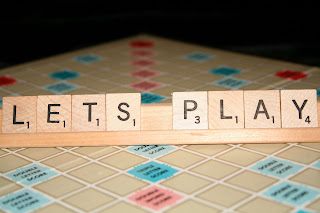Have you ever arrived somewhere you are sure you have never been before and then found there was something very familiar about that place? Perhaps you then even remember that you dreamed you visited it before. That has certainly happened to me. It is a phenomenon generally known as déjà vu.
Most people will try to explain déjà vu away and say there is nothing "magical" about it. One explanation commonly given is that there is a glitch in the way memories are stored in the brain. The immediate memory of something experienced only a few seconds ago, or even a few fractions of a second ago, somehow becomes confused and associated with much older memories.
This may, in fact, be a genuine explanation of déjà vu in many cases. But it is not always the real explanation.
The reality, I strongly believe, is that when we sleep it is possible for our mind and spirit to disassociate itself from our body and travel to places we may never have visited physically. This is called "astral travel".
Many people use the term "astral travel" to mean only this kind of experience - travelling in your "dream body" to a physically real place. I certainly believe this is possible, but to me it is only a small and perhaps even unimportant aspect of astral travel. To me, astral travel is the same as what is often called "lucid dreaming". In other words, being aware while I am dreaming that this is a dream, and then taking control of where I go and what happens in that dream.
My last blog article referred to the importance of play. What if you could play in any way you wished? In a lucid dream you can! There are no limitations. None at all. You really can do whatever you want!
What if you could, for example, decide to launch yourself into the air, flying over the countryside, and then landing wherever you wished? Not in a machine of any kind, but simply launching your body into the air without any mechanical aids? Would that be fun? It certainly is for me! Maybe you would find it fun too! This is something you can easily do in a dream state if you realize you are dreaming and are in control of the dream.
But lucid dreaming is not just about flying to places real and imaginary. It is, in my view, all about play. The best form of play. A chance to experiment without having to worry about the consequences.
The reality is that all of us are playing that way in our dreams anyway. It is just we are not aware we are playing and therefore cannot get full enjoyment from the play. Scientists have discovered that all mammals dream, and it seems they use their dreams to test ways of reacting. If you are a pet owner you have probably observed this. For example, you may have seen your cat making involuntary movements that are apparently caused by chasing a mouse even though she is not actually awake and running and there is no mouse. Or your dog chasing a cat. Scientists have observed and measured these involuntary movements and confirmed what we as pet owners suspected was happening. Nature has given us all a dream world to allow us to play and to test what strategies may work and what strategies will not. We can test these strategies in absolute safety. If the result is that we are almost certainly going to be killed or injured, that happens in the safety of the dream, leaving us alive and healthy to try a different strategy.
You are already playing in your dreams. So why not take things one stage further and become aware of that play? Learn to dream lucidly and start enjoying limitless play in the safe environment of your personal dream world.



